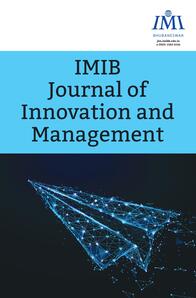
1 National Law University Odisha, Cuttack, Odisha, India
Creative Commons Non Commercial CC BY-NC: This article is distributed under the terms of the Creative Commons Attribution-NonCommercial 4.0 License (http://www.creativecommons.org/licenses/by-nc/4.0/) which permits non-Commercial use, reproduction and distribution of the work without further permission provided the original work is attributed.
The concept of financial ecology encompasses the intricate interplay of financial systems, institutions, and technologies within the economic ecosystem. It emphasizes the symbiotic relationships and dependencies that shape the modern financial world. Development of Fintech has the potential to significantly enhance and reshape the dynamics of the financial ecology, introducing new players and altering established relationships within the ecosystem. In today’s digital realm, the financial landscape has gained significant steam in its adoption of technology tools to dispense its services. The ‘internet economy’ is relied upon to produce new market development opportunities and occupations and become the greatest business opportunity for organisations in the future. India has come up significantly in the global discussion on financial technologies over the last two decades. Through a systematic review of the literature on this area, this article identifies that the regulatory framework requires provisions to support greater fintech inclusion. Moreover, several issues still lie deficiently addressed, such as user privacy and cybersecurity. This article attempts to review the opportunities, scope and risks for the implementation of financial innovation in India.
Digitisation, fintech laws, financial inclusion, financial technology
Ashta, A., & Herrmann, H. (2021, May 10). Artificial intelligence and fintech: An overview of opportunities and risks for banking, investments, and microfinance. Special issue: Artificial intelligence in finance (pp. 216–217).
Barik, R., & Sharma, P. (2019). Analyzing the progress and prospects of financial inclusion in India. Journal of Public Affairs, 19(4), 5–6.
Business Today Desk. (2021, December 30). SBI Card partners with Paytm for tokenising cards.
DPIIT. (2021). Ease of doing business report. Department for Promotion of Industry and Internal Trade.
Dubey, Y., & Bhandari, K. (2018). Interface between antitrust law and intellectual property in the payment systems market in India. Springer. https://doi.org/10.1007/978-981-13-1232-8_13
FE Bureau. (2020, November 24). Markets. Financial Express. https://www.financialexpress.com/market/only-27-indians-are-financially-literate-sebis-garg/2134842/
Fintech Convergence Council & Ernst & Young LLP. (2021 September). The winds of change: Trends shaping India’s FinTech sector. https://static.investindia.gov.in/: https://static.investindia.gov.in/s3fs-public/2021-11/ey-winds-of-change-india-fintech-report-2021.pdf
Gulamhuseinwala, I., Hatch, M., & Lloyd, J. (2017). EY fintech adoption index. EY.
Harasim, J. (2021). FinTechs, BigTechs and banks: When cooperation and when competition? Journal of Risk and Financial Management, 14(12), 614. https://doi.org/10.3390/jrfm14120614
Harshita Chawla vs WhatsApp Inc. And Others, 15 (Competition Commission of India August 18, 2020).
India, I. (2022, February 2022). BFSI – Fintech and financial services: Invest India. https://www.investindia.gov.in/sector/bfsi-fintech-financial-services
Ishwari, C. (2022, January 10). ETBFSI. https://bfsi.economictimes.indiatimes.com/news/fintech/indias-fintech-market-size-at-31-billion-in-2021-third-largest-in-world-report/88794336
Joo, M., Nishikawa, Y., & Dandapani, K. (2020). Cryptocurrency, a successful application of blockchain technology. Managerial Finance, 715–733. https://doi.org/10.1108/MF-09-2018-0451
Kagan, J. (2020, August 7). Financial technology: Fintech. https://www.investopedia.com/terms/f/fintech.asp
Kam Loon Loo, M. (2019). Enhancing financial inclusion in ASEAN: Identifying the best growth markets for Fintech. Journal of Risk and Financial Management, 12(4), 181.
Kapur, Y. (2021, July 26). India’s Fintech market: Growth outlook and investment opportunities. India Briefing by Dezan Shira and Associates. https://www.india-briefing.com/news/indias-fintech-market-growth-outlook-and-investment-opportunities-22764.html/
Keelery, S. (2021, Aug 24). Mobile internet and apps. https://www.statista.com/statistics/309019/india-mobile-phone-internet-user-penetration/#statisticContainer
Marke, A. (2018). Transforming climate finance and green investment with blockchains (1st Ed.). Elsevier Inc.
Marke, A., & Sylvester, B. (2018). Decoding the current global climate finance architecture (chapter 4). In M. e. al. (Eds.). eTransforming climate finance and green investment with blockchains (1st Ed., pp. 35–59). Elsevier.
Order under Section 26(1) of the Competition Act, 2002, 07 (Competition Commission of India November 9, 2020).
Qureshi, M. (2022, February 2). From ban to regulation, cryptocurrency’s journey so far in India. The Indian Express. https://indianexpress.com/article/technology/crypto/cryptocurrency-in-india-a-look-at-the-regulatory-journey-of-cryptocurrencies-7648767/
Rai, P. (2020, November 5). Guidelines on volume cap for third party app providers (TPAP) in UPI. NPCI.
Rajagopal. (2022). Critical insights on disruption in marketing strategies: Some perspectives in Latin American countries. In B. R. Rajagopal (Ed.), Managing disruptions in business. Palgrave studies in democracy, innovation, and entrepreneurship for growth (pp. 3– 31). Palgrave Macmillan.
Reserve Bank of India. (2017, October 11). Master direction on issuance and operation of prepaid payment instruments.
Segal, M. (2022, January 31). Sustainable bond issuance to surge past $1.3 trillion in 2022: Moody’s. https://www.esgtoday.com: https://www.esgtoday.com/sustainable-bond-issuance-to-surge-past-1-3-trillion-in-2022-moodys/
The Hindu (2022, February 2). Union Budget 2022 | ‘Green bonds’ target carbon neutrality. https://www.thehindu.com/business/budget/union-budget-2022-green-bonds-target-carbon-neutrality/article38360845.ece
Venkatachalam, P. (2020). Influence of FinTech companies on banking landscape an exploratory study in Indian context. Indian Institute of Management, Indore.
Walden, S. (2020, August 3). What is fintech and how does it affect how I bank? https://www.forbes.com/advisor/banking/what-is-fintech/